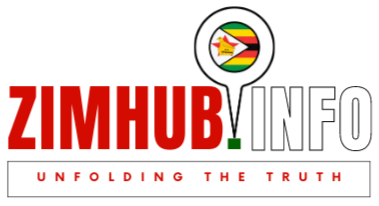Exchange rate bolt
STAFF WRITER
MARKET watchers have predicted a gloomy 2024 outlook amid a galloping exchange rate, steep taxation and an ever tanking economy, ZIMHUB can report.
As usual, this is heavily impacting on ordinary citizens whose disposable incomes have been eroded as they bear the exchange rate instability.
Zimbabwe is increasingly experiencing market turbulence with the gap between the official and parallel markets exchange rates widening each day.
The year 2023 saw some exchange rate stability towards the end of the first half after government put in place stern economic measures.
But the market warned back then that the stability was “managed” and only temporary. The concern appears to be proving to be true.
The exchange rate started rising in the third quarter of 2023 and is fast gaining momentum as new government tax measures fuel its upward spike.
The Zimdollar’s massive depreciation on the parallel market has, in the meantime, pushed the percentage difference between the official and parallel market exchange rates to over 130% (US$1:ZWL$13 000), while the formal exchange rate has remained stagnant at about ZWL$7 000.
The black market rate far exceeds the widely accepted global threshold of at most 20% for currency stability to hold.
Economists argue that the issue of the exchange rate is more of a reflection of the many wrong things in an economy suffering from a failed monetary framework.
“According to the Hanke index, Zimbabwe continues to have the worst inflation in the world which he measures as being above 900%,” a development economist Chenaimoyo Mutambarasere said.
“Exchange rate is nearly 1:10 000 and our budget statement measures the value of the economy in trillions of local currency. We have failed to produce our required minimum output for maize grains ahead of the predicted drought season in the first quarter of last year.
government has to address. Without it, some of the reforms or even some of the blueprints that look good on paper will not be able to yield any positive results in terms of economic growth.”
Bhoroma urged government to use the national budget and various other fiscal policies to ensure that industry players have incentives to value-add.
For economic growth, he believes access to market is important and this can only improve countrywide if there is good infrastructure.
“So going back to the drawing board, Zimbabwe has to have a private-public partnership act which is very clear in terms of how sponsors, how financiers can be able to get their return on investment from capital projects.
“So, if you look at major infrastructure projects such as your Beitbridge-Chirundu highway, Beitbridge-Victoria Falls and various other highways, it could be airports and all that, there is no need for the government to use public resources in financing those,” he added, while urging the government to improve the ease of doing business environment and also to incentivise tobacco processors value-add their tobacco for export.

